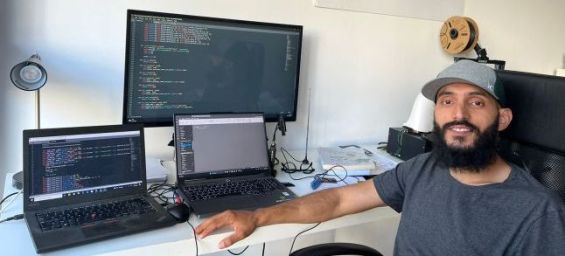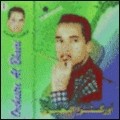Fahd Laamoumi is a Moroccan-Belgian serial entrepreneur with a background in aerospace engineering and over 12 years of experience in technology and consulting. He began his career at NASA in California before moving on to become a consultant for McKinsey & Company and eventually an entrepreneur.
Currently he leads two companies: Ballistic Defense System in Rabat, Morocco, and HRDB, a consulting firm based in Luxembourg. As the CEO of Ballistic Defense System, he spearheads the development of cutting-edge autonomous flying robots. Their latest creation, a state-of-the-art drone, is poised to revolutionize the defense industry.
Can you tell us about your academic journey and what led you to your current position at Ballistic Defense System?
Since childhood, I have been fascinated by weaponry and aeronautics; by the age of 8, I knew the technical specifications of all the fighter planes from WWII. Among many others, two of my childhood heroes were Wernher von Braun and Sergei Korolev. This passion led me first to pursue engineering studies at Polytechnique Mons in Belgium and SUPAERO in Toulouse, and then to found Ballistic Defense System.
Your company specializes in autonomous flying robots for defense. Could you share your vision for how these innovations might enhance Morocco's security in the coming years?
We are living in a time of great change, comparable to the gunpowder revolution. Artificial intelligence allows and will continue to allow robots to carry out increasingly complex military missions entirely autonomously. The countries with the best scalable robots will have the military advantage. We aim to contribute to the security of our country.
Given the complexities of autonomous systems, what are the main challenges you face in developing AI-driven defense solutions, and how do you address security concerns?
90% of R&D effort are in the Software embedded development. Building a remote-controlled drone is very easy; in Europe, even children build them in aeromodelling clubs. What is challenging is making it intelligent, autonomous, precise, and efficient.
Our main challenge is recruiting experienced R&D engineers. Unfortunately, after conducting dozens of interviews, it has proven very difficult to find candidates with experience in: Modeling in computer vision and R&D in flight control or robotics.
I’d like to use this article to reach out to Moroccans with strong experience in these fields to connect with me on LinkedIn. The best way to impress us is by showcasing concrete examples of code you've developed and problems you've solved. Our primary recruitment criterion is capability, above CVs and diplomas.
During the Marrakech Airshow, you presented a remote-controlled drone. Can you tell us more about this recent project?
For over a year, we have been exclusively using personal funds to develop the embedded intelligence of a drone, enabling it to autonomously identify, detect, and collide with a target. We are now working on navigation without GPS.
You manage two companies at the same time; could you describe HRDB's activities?
HRDB connects Moroccan engineers with European companies in need across the European market. Today, despite the economic slowdown, there is a strong demand in Europe for Moroccan IT engineers, who have an excellent reputation in the market, especially in French-speaking regions, as Moroccans are fluent in French.
You've held a variety of roles in consulting and engineering. How have these diverse experiences influenced your approach as a leader in a high-stakes sector like defense?
I have traveled extensively and followed a non-linear career path, gaining new skills at each stage. This experience greatly benefits me today as a CEO. My technical expertise, combined with business acumen, is invaluable in running a deep tech company.
At NASA Ames, you worked on orbital and atmospheric models. Do you see parallels between aerospace engineering and the technical challenges you face today in autonomous defense systems?
Of course, doing R&D engineering involves, among other things, modeling complex systems. The scientific approach is similar.
Having worked in various sectors, from aerospace to defense to consulting, what has been the most pivotal moment in your career, and why?
In 2015, I was laid off by Schlumberger during a major company restructuring following the oil price collapse. I was 29, earning an excellent salary, and it was a difficult experience, but it pushed me out of my comfort zone and unexpectedly led me toward entrepreneurship. It turned out to be the best thing that could have happened to me.
Looking ahead, where do you see Morocco's role in the global tech and defense landscape, and how do you envision contributing to that future?
Morocco has two incredible strengths:
1. An extraordinary human potential that could help us create technological masterpieces. We simply need to harness it for innovation.
2. One of the best diplomacies in the world, thanks to the royal vision. We have many friends around the globe. This offers a huge export potential for weapons.





 chargement...
chargement...













